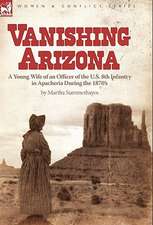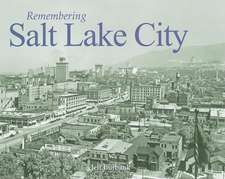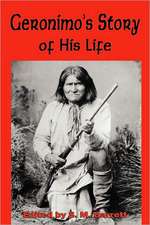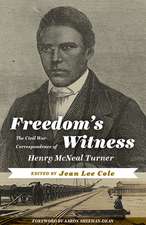CULTURE, CLASS, AND POLITICS IN MODERN APPALACHIA: ESSAYS IN HONOR OF RONALD L. LEWIS: WEST VIRGINIA & APPALACHIA
Editat de JENNIFER EGOLF, KEN FONES-WOLF, LOUIS C. MARTINen Limba Engleză Paperback – 23 mar 2009
Culture, Class, and Politics in Modern Appalachia takes stock of the field of Appalachian studies as it explores issues still at the center of its scholarship: culture, industrialization, the labor movement, and twentieth-century economic and political failure and their social impact. A new generation of scholars continues the work of Appalachian studies’ pioneers, exploring the diversity and complexity of the region and its people. Labor migrations from around the world transformed the region during its critical period of economic growth. Collective struggles over occupational health and safety, the environment, equal rights, and civil rights challenged longstanding stereotypes. Investigations of political and economic power and the role of social actors and social movements in Appalachian history add to the foundational work that demonstrates a dynamic and diverse region.
Din seria WEST VIRGINIA & APPALACHIA
-
 Preț: 158.10 lei
Preț: 158.10 lei -
 Preț: 210.64 lei
Preț: 210.64 lei -
 Preț: 240.00 lei
Preț: 240.00 lei -
 Preț: 181.23 lei
Preț: 181.23 lei -
 Preț: 141.70 lei
Preț: 141.70 lei -
 Preț: 164.10 lei
Preț: 164.10 lei -
 Preț: 147.17 lei
Preț: 147.17 lei -
 Preț: 150.26 lei
Preț: 150.26 lei - 11%
 Preț: 392.20 lei
Preț: 392.20 lei -
 Preț: 148.11 lei
Preț: 148.11 lei -
 Preț: 170.92 lei
Preț: 170.92 lei -
 Preț: 148.90 lei
Preț: 148.90 lei -
 Preț: 149.12 lei
Preț: 149.12 lei -
 Preț: 148.98 lei
Preț: 148.98 lei -
 Preț: 147.48 lei
Preț: 147.48 lei -
 Preț: 158.40 lei
Preț: 158.40 lei - 11%
 Preț: 435.10 lei
Preț: 435.10 lei -
 Preț: 143.99 lei
Preț: 143.99 lei -
 Preț: 154.41 lei
Preț: 154.41 lei -
 Preț: 212.82 lei
Preț: 212.82 lei -
 Preț: 196.29 lei
Preț: 196.29 lei -
 Preț: 196.29 lei
Preț: 196.29 lei
Preț: 168.42 lei
Nou
Puncte Express: 253
Preț estimativ în valută:
32.23€ • 33.77$ • 26.64£
32.23€ • 33.77$ • 26.64£
Carte disponibilă
Livrare economică 21 martie-04 aprilie
Preluare comenzi: 021 569.72.76
Specificații
ISBN-13: 9781933202396
ISBN-10: 1933202394
Pagini: 384
Dimensiuni: 152 x 229 x 23 mm
Greutate: 0.59 kg
Ediția:1st Edition
Editura: West Virginia University Press
Colecția West Virginia University Press
Seria WEST VIRGINIA & APPALACHIA
ISBN-10: 1933202394
Pagini: 384
Dimensiuni: 152 x 229 x 23 mm
Greutate: 0.59 kg
Ediția:1st Edition
Editura: West Virginia University Press
Colecția West Virginia University Press
Seria WEST VIRGINIA & APPALACHIA
Recenzii
"An excellent contribution to an understanding of modern developments in studies of Appalachia."
Arthur G. Neal, Journal of American Culture
"Readers come away with some fine specifics but also a real feel for the state of regional scholarship."
Appalachian Heritage
"Culture, Class, and Politics is a fitting tribute to Ronald Lewis' lifetime of work. The articles are pertinent [and] frequently break new ground..."
Kenneth R. Bailey, West Virginia History
"The essays are well written and researched, are infused with historiography, and offer nuance, complexity, and pluralism to a region—not to mention a state—once seen as unitary and ripe for the 'benefits' of civilization."
Chad Berry, Journal of Southern History
Arthur G. Neal, Journal of American Culture
"Readers come away with some fine specifics but also a real feel for the state of regional scholarship."
Appalachian Heritage
"Culture, Class, and Politics is a fitting tribute to Ronald Lewis' lifetime of work. The articles are pertinent [and] frequently break new ground..."
Kenneth R. Bailey, West Virginia History
"The essays are well written and researched, are infused with historiography, and offer nuance, complexity, and pluralism to a region—not to mention a state—once seen as unitary and ripe for the 'benefits' of civilization."
Chad Berry, Journal of Southern History
Notă biografică
Jennifer Egolf is a visiting professor at Indiana University of Pennsylvania. Ken Fones-Wolf is the Stuart and Joyce Robbins Chair and Professor of History at West Virginia University. Louis Martin is an assistant professor of history at Chatham University.
Cuprins
•Louis C. Martin and Ken Fones-Wolf
Preface
•Dwight B. Billings
Introduction: Writing Appalachia: Old Ways, New Ways, and WVU Ways
•Section I: Culture •Deborah Weiner
‘Scrip Was a Way of Life’: Company Stores, Jewish Merchants, and the Coalfield Retail Economy
•Paul Rakes
A Combat Scenario: Early Coal Mining and the Culture of Danger
•Jennifer Egolf
Radical Challenge and Conservative Triumph: The Struggle to Define American Identity in the Somerset County Coal Strike, 1922–1923
•Connie Park Rice
Separate But Never Equal: Dewey W. Fox and the Struggle for Black Equality in the Age of Jim Crow
Section II: Class •Michael E. Workman
‘Sadly in need of organization’: Labor Relations in the Fairmont Field, 1890 to 1918
•Rebecca Bailey
The Matewan Massacre: Before and After
•Richard P. Mulcahy
Progress and Persistent Problems: Sixty Years of Health Care in Appalachia
•John Hennen
1199 Comes to Appalachia: Beginnings, 1970–1976
Section III: Politics •Jeffery B. Cook
Mining Reform after Monongah: The Conservative Response to Mine Disasters
•Mark Myers
Depression, Recovery, Instability: The NRA and the McDowell County, West Virginia Coal Industry, 1920–1938
•Shirley Stewart Burns
To Dance with the Devil: The Social Impact of Mountaintop Removal Surface Coal Mining
Publications by Ronald L. Lewis Contributors Index
Preface
•Dwight B. Billings
Introduction: Writing Appalachia: Old Ways, New Ways, and WVU Ways
•Section I: Culture •Deborah Weiner
‘Scrip Was a Way of Life’: Company Stores, Jewish Merchants, and the Coalfield Retail Economy
•Paul Rakes
A Combat Scenario: Early Coal Mining and the Culture of Danger
•Jennifer Egolf
Radical Challenge and Conservative Triumph: The Struggle to Define American Identity in the Somerset County Coal Strike, 1922–1923
•Connie Park Rice
Separate But Never Equal: Dewey W. Fox and the Struggle for Black Equality in the Age of Jim Crow
Section II: Class •Michael E. Workman
‘Sadly in need of organization’: Labor Relations in the Fairmont Field, 1890 to 1918
•Rebecca Bailey
The Matewan Massacre: Before and After
•Richard P. Mulcahy
Progress and Persistent Problems: Sixty Years of Health Care in Appalachia
•John Hennen
1199 Comes to Appalachia: Beginnings, 1970–1976
Section III: Politics •Jeffery B. Cook
Mining Reform after Monongah: The Conservative Response to Mine Disasters
•Mark Myers
Depression, Recovery, Instability: The NRA and the McDowell County, West Virginia Coal Industry, 1920–1938
•Shirley Stewart Burns
To Dance with the Devil: The Social Impact of Mountaintop Removal Surface Coal Mining
Publications by Ronald L. Lewis Contributors Index
Textul de pe ultima copertă
Culture, Class, and Politics in Modern Appalachia takes stock of the field of Appalachian studies as it explores issues still at the center of its scholarship: culture, industrialization, the labor movement, and twentieth-century economic and political failure and their social impact. A new generation of scholars continues the work of Appalachian studies’ pioneers, exploring the diversity and complexity of the region and its people. Labor migrations from around the world transformed the region during its critical period of economic growth. Collective struggles over occupational health and safety, the environment, equal rights, and civil rights challenged longstanding stereotypes. Investigations of political and economic power and the role of social actors and social movements in Appalachian history add to the foundational work that demonstrates a dynamic and diverse region.












